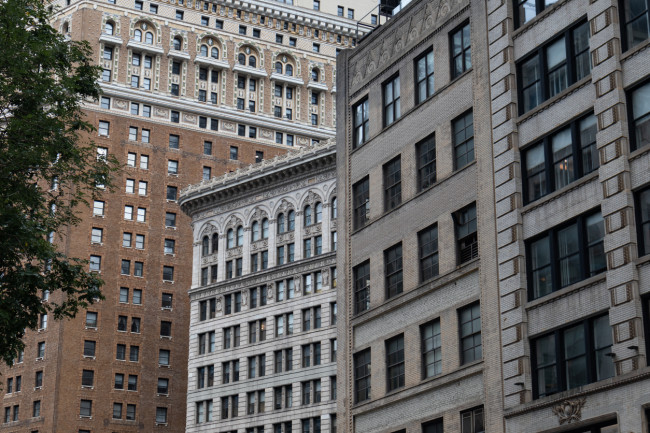My crazy neighbor keeps calling the authorities to my apartment. What can I do?

I live in a condo conversion, and have a rent-controlled neighbor who appears mentally unstable and has decided to harass me by repeatedly calling the police to report child abuse in my home, which has happened roughly 30 times so far this year, and always causes a large disturbance. (I live alone with my girlfriend and have no children, but the neighbor also did this to the previous residents who did have children, so it created bigger problems for them.) My neighbor does not seem sane or reasonable enough for me to approach personally, but I've informed the manager and condo board, who seem either uninterested or unable to help. What can I do to stop this?
While there are steps your condo board should take to stop your neighbor's harassment, your approach to the problem should also take into account your neighbor's apparent mental health issues, say our experts.
"This is a situation that does not typically lend itself to legal proceedings and a kinder, gentler approach may be needed and more productive," says Steven Wagner, a co-op and condo attorney with Wagner Berkow LLP.
First, he recommends contacting the NYC Department for the Aging or the New York State Office of the Aging, which both have case management resources for senior citizens. Wagner notes that there are also private agencies that provide similar assistance, such as UJA-Federation and Jasa.
"Another avenue would be to attempt to refer the person to Adult Protective Services," suggests Dean Roberts, a co-op and condo attorney with Norris, McLaughlin, & Marcus. "Though without litigation or some type of serious event that warrants police involvement, this agency lacks the resources to address the many individuals in need of help in the city."
Similarly, says Wagner, it's worth trying to get in touch with your neighbor's family, if possible, to let them know about the issue. "They may be able to assist in getting your upstairs neighbor assistance and services that will provide a better living situation and/or emotional and mental support and treatment," he explains.
You should also open a dialogue with the city agencies your neighbor has been calling to report you, as well as your local police precinct. "New York City has the Administration for Children's services, which is the likely referral if your neighbor calls 311, and New York State has Child Protective Services," says Wagner. "Obviously child abuse should be taken very seriously, but repeated false reports should be clarified with both these agencies and the local police precinct so that the complaints are taken in context and do not create disturbances."
If you develop a relationship with your contacts at these departments, they may be able to intervene to mitigate the problem when your neighbor calls in the future.
Roberts notes that it's smart to also inform these agencies of the issue in writing, as this kind of paper trail would have a "protective effect" of establishing your claim of false reporting in case there are larger legal issues in the future, putting you in a better position.
Now, onto the matter of addressing the problem with your building: Neighbor disputes are trickier in a condo than in a co-op, says Roberts, since condos don't have the same landlord-tenant relationship with residents, and therefore disputes have to be dealt with via litigation in the state Supreme Court, which is more expensive and difficult than housing court.
It's very possible the board doesn't want to address the issue, in part because it's difficult to evict rent-regulated tenants, and because dealing with a tenant is technically the unit owner's responsibility as their landlord and the unit may well be owned by a sponsor who has a large amount of influence over the board.
Still, if you haven't already complained in writing to the board, now's the time to start. "Focus your communication in writing, to the board; even copy your own attorney to start a paper trail of issues," advises Thomas Usztoke, vice president of Douglas Elliman Property Management. "The board is obligated to respond directly, through its managing agent or corporate attorney. Press the issue, since silence is not an approrpiate response."
Wagner notes that you should also check your building's bylaws, which may outline steps for addressing a neighbor who's interfering with other residents of the building.
But if they refuse to address the problem, says Wagner, the "Compliance with By-Laws, Rules, and Regulations" section of the Condominium Act has a section stating that each unit owner must comply with the condo building's regulations, and that failure to do so allows the condo and affected parties (in other words, you) to sue for damages or some kind of other relief. If you bring a case to enforce the rules, Wagner adds, a court will likely bring in Adult Protective Services, one of the agencies mentioned above, or appoint a guardian connected with social services to help handle your troubled neighbor.
"I would encourage your condominium not to take a 'head in the sand' approach to what may be an aging population in the building, and to develop protocols for addressing the kind of issues raised in your questions," says Wagner.
Trouble at home? Get your NYC apartment-dweller questions answered by an expert! Send us your questions.
See all Ask an Expert.
You Might Also Like

























